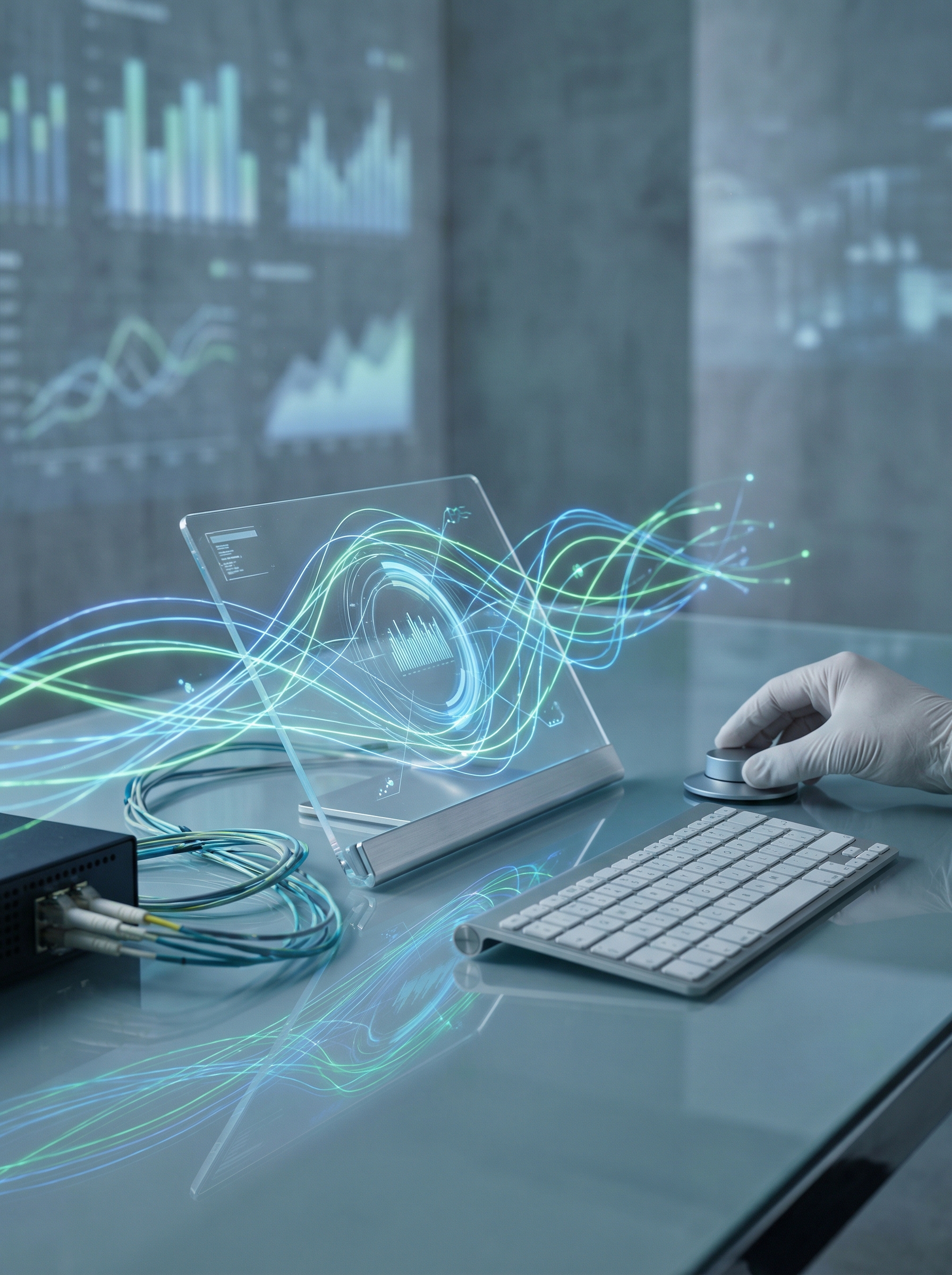.jpg)
October 21, 2025
PPC & Google Ads Strategies
When Is It Time to Trust AI Over Your PPC Intuition?
Pay-per-click advertising has always been a combination of numbers, intuition, and experience. You've spent years learning how to interpret campaign data, adjusting bids based on gut feelings, and making quick decisions about which keywords should receive your budget. Your ability to instinctively understand PPC became your most valuable asset—until AI came along.
The Impact of AI on PPC
AI in PPC has fundamentally changed how we approach campaign management. Machine learning algorithms now analyze millions of data points in seconds, optimize bids in real-time, and predict user behavior with startling accuracy. Google's Smart Bidding, Performance Max, and automated targeting have moved from experimental features to mainstream tools that many advertisers swear by.
The Dilemma: AI or Intuition?
The question keeping marketers up at night: when should you trust the algorithm over your own battle-tested instincts? This isn't about choosing sides in some human-versus-machine showdown. AI trust in advertising represents a delicate balance between embracing technological advancement and preserving the strategic thinking that makes great campaigns truly exceptional.
The Evolution of PPC Management: From Intuition to Automation
Manual PPC management once demanded countless hours of spreadsheet analysis, bid adjustments, and gut-feeling decisions. You'd spend your mornings analyzing performance data, your afternoons tweaking bids, and your evenings second-guessing whether you made the right calls. The process was exhausting and prone to human error.
The limitations were clear:
- Scalability issues - Managing hundreds or thousands of keywords across multiple campaigns meant you could only optimize a fraction of your account effectively
- Delayed reactions - By the time you noticed a trend and adjusted your strategy, market conditions had already shifted
- Inconsistent performance - Your campaigns performed differently depending on whether you had your morning coffee or were battling decision fatigue at 4 PM
- Data overload - The sheer volume of metrics and variables made it impossible to process everything simultaneously
PPC automation started changing this landscape around 2016 when machine learning algorithms began handling routine tasks. Google introduced automated bidding strategies that could adjust bids in real-time based on conversion likelihood. What took you hours now happened in milliseconds.
PPC campaign setup transformed from a multi-day process into streamlined workflows. AI-powered tools began suggesting keyword combinations, writing ad variations, and identifying audience segments you might have overlooked. The technology analyzed patterns across millions of auctions, learning from data points no human could possibly track manually.
The shift wasn't just about speed. These systems could test multiple variables simultaneously, identify micro-trends in user behavior, and adapt strategies across time zones while you slept. Your role started evolving from tactical executor to strategic overseer.
Key AI Applications in PPC Campaigns
Smart Bidding
Smart Bidding represents one of the most transformative AI technologies in PPC management. Google's Smart Bidding uses machine learning to optimize your bids in real-time across billions of auctions. The system analyzes signals like device type, location, time of day, and user behavior patterns to adjust bids automatically. You're essentially giving Google's algorithm control over your bid strategy, whether that's Target CPA, Target ROAS, Maximize Conversions, or Enhanced CPC. The algorithm processes data points that would be impossible for you to manually evaluate at scale.
Performance Max campaigns
Performance Max campaigns take AI-driven automation several steps further. These campaigns operate across Google's entire inventory—Search, Display, YouTube, Gmail, and Discover—using a single campaign structure. You provide creative assets, audience signals, and conversion goals, then the AI determines where, when, and how to show your ads. The system tests different combinations of your headlines, descriptions, and images to find winning formulas you might never have considered.
Responsive Search Ads
Responsive Search Ads leverage automated ad creation by allowing you to input up to 15 headlines and 4 descriptions. The AI then tests different combinations to identify which messages resonate best with specific search queries. You're no longer locked into static ad copy—the system adapts your messaging based on performance data.
Dynamic Search Ads
Dynamic Search Ads eliminate the need for extensive keyword lists by automatically generating ad headlines based on your website content. The AI crawls your site, matches user queries to relevant pages, and creates targeted ads on the fly. This approach works particularly well for large inventories or rapidly changing product catalogs.
To further enhance the effectiveness of Dynamic Search Ads and other PPC strategies, implementing AI-powered negative keyword tools can be a game-changer. Such tools classify search terms as Relevant, Not Relevant, or Competitor instantly generating negative keyword lists with AI.
Audience targeting
Audience targeting has been revolutionized through AI-powered segmentation and predictive analytics. Machine learning algorithms identify patterns in user behavior, creating custom audiences based on likelihood to convert. Google's Customer Match and Similar Audiences use AI to find users who share characteristics with your best customers. Predictive analytics forecast which audience segments will deliver the strongest performance, allowing you to allocate budget more strategically before you've even gathered extensive historical data.
Advantages of Trusting AI Over Intuition in PPC Management
AI systems process millions of data points in milliseconds—something your brain simply can't match, no matter how experienced you are. This computational power translates into AI benefits in PPC that fundamentally change how campaigns perform.
1. Speed and Scale
AI's most obvious advantage is its speed and scale. While you might analyze 50 keywords per hour, AI evaluates thousands simultaneously, adjusting bids across multiple campaigns without breaking a sweat. This efficiency in advertising means your campaigns respond to market changes in real-time, not after your morning coffee.
2. Data-Driven Decisions
With AI, decisions are based on data rather than guesswork. This eliminates the uncertainty that even experienced PPC managers experience. Unlike humans, AI doesn't have off days, personal biases, or gut feelings that can cloud judgment. Instead, it identifies patterns in user behavior that would be impossible to spot manually—such as the relationship between weather conditions and conversion rates or how specific moments throughout the day impact click-through rates.
3. Consistency
The consistency factor is also important. AI maintains the same level of performance 24/7, continuously optimizing while you sleep. It doesn't get tired during end-of-quarter pushes or make hasty decisions under pressure from stakeholders.
4. Faster Testing
Testing speed increases significantly with AI. Traditional A/B testing methods may take weeks to produce statistically significant results, but machine learning algorithms can test multiple variables at once and learn from each interaction to improve future performance. As a result, your campaigns evolve more quickly, adapt faster, and seize opportunities before your competitors even become aware of them.
Limitations and Risks Associated with Sole Reliance on AI in PPC
AI systems bring remarkable capabilities to PPC management, but PPC professionals need to understand the drawbacks of AI that can't be ignored. When you hand over complete control to algorithms, you're essentially operating in a black box where decision-making processes remain opaque and difficult to audit.
The Challenge of Black Box Algorithms
Black box algorithms present a significant challenge. You can't always understand why the AI made specific bidding decisions or chose particular audience segments. This lack of transparency becomes problematic when you need to explain campaign performance to stakeholders or troubleshoot unexpected results. The algorithm might be optimizing for metrics that don't align with your broader business objectives, and you won't realize it until you've already spent significant budget.
The Vulnerability of Data Dependency
Data dependency creates another critical vulnerability. AI systems require substantial historical data to function effectively. When you're launching new products, entering untapped markets, or targeting emerging trends, the AI lacks the necessary information to make informed decisions. The algorithms can't predict shifts in consumer behavior caused by external events—economic changes, viral trends, or competitive disruptions—until after they've already impacted your campaigns.
The Risk of Perpetuating Biases
You also face the risk of AI perpetuating existing biases in your data. If your historical campaigns inadvertently excluded certain demographics or reinforced stereotypes, the AI will amplify these patterns. The system optimizes based on past performance without questioning whether those patterns serve your current goals or represent the full market opportunity.
Recognizing Situations Where Human Intuition Still Holds Value in PPC Management
AI algorithms excel at processing data patterns, but certain PPC scenarios demand the irreplaceable touch of human oversight in PPC. Here are some situations where human intuition is still valuable:
1. Launching campaigns for brand-new products
When you're launching campaigns for brand-new products without historical performance data, your intuition becomes your primary navigation tool. AI systems need baseline information to optimize effectively—without it, you're flying blind if you rely solely on automation.
2. Crafting ad copy with emotional appeal
Creative storytelling remains firmly in human territory. When crafting ad copy that resonates with emotional triggers, cultural nuances, or brand voice consistency, your creative instincts outperform algorithmic suggestions. I've seen AI-generated headlines that were technically optimized but completely missed the mark on brand personality. You understand context, humor, and subtle messaging in ways that current AI simply cannot replicate.
3. Making ethical decisions in targeting
Ethical considerations present another critical area where human judgment proves essential. When targeting sensitive demographics or promoting products in regulated industries, you need to apply moral reasoning that extends beyond performance metrics. AI doesn't inherently understand when a targeting strategy might be exploitative or when ad messaging crosses ethical boundaries.
4. Managing crises with immediate action
Crisis management situations require immediate human decision-making. If your brand faces negative publicity or market conditions shift dramatically, you can't wait for AI to learn from emerging patterns. Your ability to pause campaigns, adjust messaging, or pivot strategy based on real-time contextual awareness becomes invaluable during these moments.
Striking an Optimal Balance Between AI and Human Expertise in PPC Advertising
The most successful PPC strategies don't force you to choose between AI and intuition—they demand both. A hybrid approach PPC strategy recognizes that algorithms excel at processing data while humans excel at understanding context, nuance, and business objectives that extend beyond immediate metrics.
The Role of AI in PPC Advertising
AI handles the repetitive, data-intensive tasks:
- Bid adjustments across thousands of keywords
- Real-time budget allocation
- Pattern recognition in user behavior
- Performance optimization at scale
The Role of Humans in PPC Advertising
You focus on strategic decisions:
- Setting campaign objectives
- Defining brand voice
- Interpreting market shifts
- Making judgment calls that require business context
Think of AI as your analytical partner, not your replacement. When you notice Smart Bidding consistently underperforming for a specific product category, your intuition might recognize a seasonal pattern or competitive dynamic the algorithm hasn't learned yet. You intervene, adjust the strategy, and let AI optimize within those new parameters.
The question "When Is It Time to Trust AI Over Your PPC Intuition?" becomes easier to answer when you build feedback loops. Monitor AI decisions regularly, identify patterns where automation succeeds or fails, and use those insights to refine your oversight approach. You're not micromanaging—you're calibrating.
Set up governance frameworks that define when human review is mandatory. New campaign launches, significant budget increases, brand safety concerns, or unusual performance anomalies should trigger human evaluation. For routine optimizations within established parameters, let AI work autonomously.
Your role evolves from tactical executor to strategic orchestrator. You set the vision, establish guardrails, and intervene when AI lacks the context to make optimal decisions.
Practical Tips for Marketers Navigating the Trust Dilemma Between AI and Their Own Intuition in PPC Management
Start with a Testing Framework
You need a structured approach when evaluating AI tools for your campaigns. Set up controlled experiments where you run AI-driven campaigns alongside manually managed ones, measuring specific KPIs like cost per conversion, ROAS, and quality score. Incorporate A/B testing into your strategy for more effective side-by-side comparison. This gives you concrete data about when AI outperforms your manual adjustments.
Establish Clear Performance Baselines
Before handing control to AI systems, document your current campaign performance metrics. Track your average CPA, conversion rates, and click-through rates over at least 30 days. These baselines become your reference points for performance monitoring and help you identify whether AI improvements are genuine or just statistical noise.
Create Decision Checkpoints
Build specific moments in your campaign lifecycle where you review AI recommendations before implementation:
- Budget allocation changes exceeding 20% of your total spend
- Bid adjustments that deviate more than 30% from historical averages
- Audience targeting expansions into completely new demographics
- Ad copy variations that significantly alter your brand messaging
Monitor Leading Indicators, Not Just Results
You can't wait until month-end to discover AI made poor decisions. Watch daily metrics like impression share, search term quality, and landing page relevance scores. These early warning signals tell you when AI might be optimizing for the wrong objectives or exploring unprofitable territory.
Document Your Override Decisions
When you choose to override AI recommendations, record your reasoning and the outcome. This personal database helps you recognize patterns where your intuition consistently beats automation, refining your judgment about when to intervene.
Conclusion
The future of PPC management isn't about choosing sides between AI and human intuition—it's about recognizing when each brings the most value to your campaigns. You've seen how AI excels at processing massive datasets, optimizing bids in real-time, and identifying patterns invisible to the human eye. You've also learned where your intuition remains irreplaceable: understanding brand nuances, navigating ethical gray areas, and making strategic pivots during market disruptions.
When is it time to trust AI over your PPC intuition? The answer lies in the data. Trust AI when you have sufficient historical performance data, when managing high-volume campaigns that demand constant optimization, and when testing variables at scale. Trust your intuition when launching new products, entering unfamiliar markets, or when something in the data simply doesn't align with what you know about your customers.
The most successful PPC managers aren't those who blindly follow AI recommendations or stubbornly cling to outdated practices. They're the ones who understand both systems deeply enough to know when to let the algorithms work their magic and when to take the wheel themselves.
When Is It Time to Trust AI Over Your PPC Intuition?
Discover more about high-performance web design. Follow us on Twitter and Instagram




